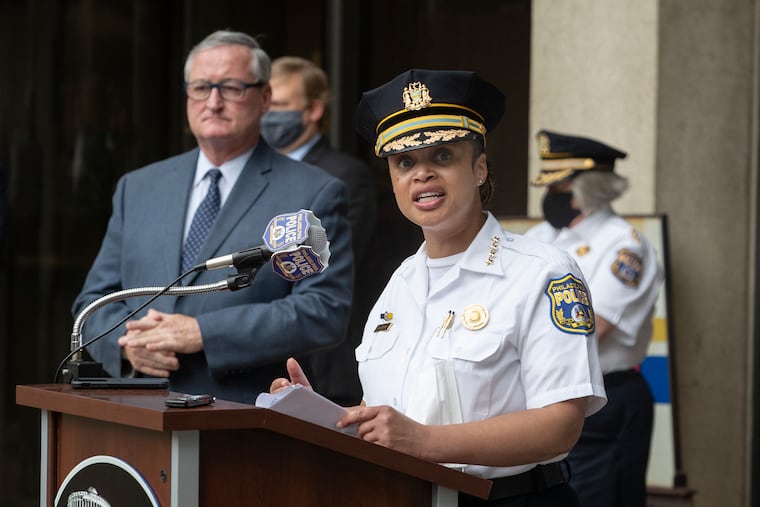Philly has put a behavioral health specialist in its 911 call center amid calls for police reform
Mayor Jim Kenney's administration says the program will reduce arrests of individuals experiencing mental health crises. Instead, officials hope to connect them with services.

Philadelphia now has a behavioral health specialist embedded in the police dispatch center for the first time in the city’s history — a step that Mayor Jim Kenney’s administration said marks progress toward promised police reforms.
With behavioral health specialists assisting in the radio room, officials said the city can better identify 911 calls that involve mental health issues and offer services to those residents — instead of arresting them.
The initiative also includes a co-responder program, in which clinical staff and police work together to respond to such calls.
"The goal of the program is to safely deflect individuals with behavioral health needs away from the criminal justice system and into more appropriate behavioral health care or social services in the community,” Kenney said.
The new program places clinical staffers with dispatchers to determine the best response to calls from the public or patrol officers involving behavioral health issues. A “triage desk” will be established to identify those calls, the city said.
City officials said planning for the program has been underway since last year. But the issue of police responses to 911 calls has gained attention in recent months, as protesters demanded police reform and pushed to “defund the police.”
One suggestion often cited by activists, City Council members, and even Kenney was to reconsider whether police are always the best equipped to respond to 911 calls.
“We’re moving in that direction as a city and as a country, in trying to get items that were traditionally 911 calls out of the hands of police, because it’s really not their training or responsibility to deal with people that are experiencing addiction or mental health issues or homelessness,” Kenney said in June.
» READ MORE: Defund the police: What does it mean, and what would it look like in Philly?
The Kenney administration said the program fits into the police reforms it promised in June, days after protests swept the city over the police killing of George Floyd in Minneapolis.
The full implementation of the co-responder program is expected to be completed next month. In a pilot program that embedded outreach workers with police in the city’s East police division, officials said they made more than 150 connections to services without making any arrests.
The embedded clinical staff for the program will come from the city’s Department of Behavioral Health and Intellectual disAbility Services. Jill Bowen, the department’s acting commissioner, called the program an important partnership.
“It will connect people experiencing mental illness and/or addiction to the behavioral health system when they most desperately need care, and it frees city police from that duty, allowing them to better serve and protect residents," Bowen said.
City officials said the co-responder model they are implementing has gained popularity across the country as a means of responding to behavioral health issues.
Police Commissioner Danielle Outlaw said embedding clinical staff with 911 dispatchers will significantly improve her department’s responses, calling the program "an opportunity to refine services between first responders and the citizens we serve.”